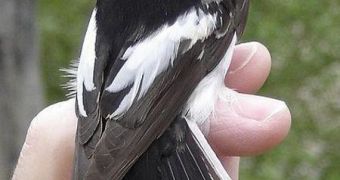Birds are lucky. There is no other way to put it, considering that one of the only things standing between them and extinction is their ability to keep their migration schedule mobile. If it weren't for that, then they would have been caught off-guard by the sudden shift in climate patterns that the planet is experiencing at this point. As a result, various migratory species have had to adapt their departure and return schedules. But, in some instances, an earlier departure date is not equivalent to arriving at the destination earlier, researchers say.
This basically means that the birds encounter a lot more obstacles on the way, such as storms and other weather events, which prolong their trips. In other words, even if they leave a few days earlier than normally, they still arrive at their destinations at the same time they always have. According to a new research paper, published in the January 28 issue of the respected scientific journal Current Biology, the finding could mean that migratory birds may be more efficient at coping with the changes brought forth by climate change and global warming than first thought, ScienceDaily reports.
“We have been claiming for a while that migratory birds have difficulties in adapting to climate change because of their rigid and rather inflexible timing of spring migration; in Africa and South America, they cannot know when spring starts at their northern breeding grounds. This study shows that timing of spring migration is flexible and that birds do respond to climate change, although in a rather indirect way: breeding dates have become progressively earlier, and birds are thus born earlier in the spring,” University of Groningen expert Christiaan Both, from The Netherlands, says.
“We now show that the effect of early birth is also that the birds migrate early, and migration time has advanced over the last 25 years. The reason that the birds did not advance their arrival is thus not due to a failure to start migration earlier, but because circumstances at passage in Southern Europe have not improved,” he adds. The researcher however highlights the fact that several bird species may be extremely vulnerable to the changing environmental conditions they are subjected to. This is especially true for long-distance migratory birds, Both concludes.

 14 DAY TRIAL //
14 DAY TRIAL //